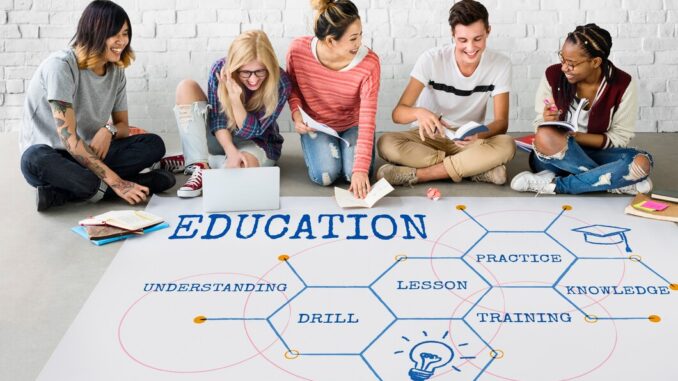
In today’s fast-paced and ever-changing world, students need more than just academic knowledge to thrive.
Table of Contents
The landscape of education and employment is evolving, and it’s essential for students to develop a diverse set of skills to adapt and excel. Top 10 Skills for Students.
1. Critical Thinking and Problem-Solving
The capacity to critically evaluate information and reach a well-reasoned conclusion is known as critical thinking. For students, it means not just absorbing facts but understanding and questioning them. Problem-solving goes hand-in-hand with critical thinking, enabling students to identify solutions in complex situations. These skills are crucial for academic success and invaluable in real-world scenarios.
2. Creativity and Innovation
Creativity is about thinking outside the box and coming up with novel ideas. Innovation is applying those ideas to generate tangible solutions. In a world driven by technological advancements and new challenges, students who can harness creativity and innovation will stand out. Encouraging creativity in various forms, such as arts, sciences, and everyday problem-solving, prepares students for future opportunities.
3. Digital Literacy
In the digital age, understanding and effectively using technology is non-negotiable. Digital literacy encompasses a range of skills, from basic computer knowledge to understanding cybersecurity and digital communication.
Students need to navigate digital platforms, analyze information critically, and stay safe online, making digital literacy a foundational work.
4. Communication Skills
Effective communication is key to success in both academic and professional environments. This includes verbal, written, and non-verbal communication.
Students should practice clear and concise writing, articulate speaking, active listening, and appropriate body language. Good communication fosters better relationships, teamwork, and leadership.
5. Collaboration and Teamwork
The ability to work well with others is essential in today’s interconnected world. Collaboration skills involve understanding different perspectives, contributing to group efforts, and resolving conflicts.
Teamwork is increasingly valued in educational settings and the workplace, as it leads to more creative solutions and efficient problem-solving.
6. Time Management and Organization
Time management is about prioritizing tasks, setting goals, and meeting deadlines. Organizational help students keep track of their responsibilities and manage their workload effectively.
These skills are crucial for balancing academic requirements with extracurricular activities and personal life, leading to reduced stress and better performance.
7. Adaptability and Flexibility
Change is constant, and the ability to adapt is vital for success. Students should learn to be flexible in their thinking and approach, ready to pivot when faced with new information or unexpected challenges.
Adaptability also involves resilience, helping students to recover quickly from setbacks and keep moving forward.
8. Emotional Intelligence
The capacity to comprehend, control, and sympathize with others’ emotions is known as emotional intelligence (EQ).
High EQ helps students navigate social complexities, build stronger relationships, and make informed decisions. It’s a critical for personal development, leadership, and maintaining mental health.
9. Leadership Skills
Leadership is not just about leading others; it’s about self-leadership too. Students should develop qualities such as responsibility, initiative, and the ability to inspire and motivate others.
Leadership skills can be honed through various activities, including student organizations, sports, and community service, preparing students for future roles in any field.
10. Cultural Competence and Global Awareness
In an increasingly globalized world, understanding and appreciating diverse cultures is essential. Cultural competence involves recognizing and respecting differences, fostering inclusivity, and building meaningful relationships across cultural boundaries.
Global awareness helps students understand international issues, preparing them for a world where cross-cultural interactions are the norm.
Conclusion of Top 10 Skills for Students
Developing these top 10 skills equips students not just for academic success but for life.
As they navigate through school and beyond, these skills will help them adapt to changes, overcome challenges, and seize opportunities. Education is not just about learning facts; it’s about preparing for the future, and these skills are the key to that preparation.